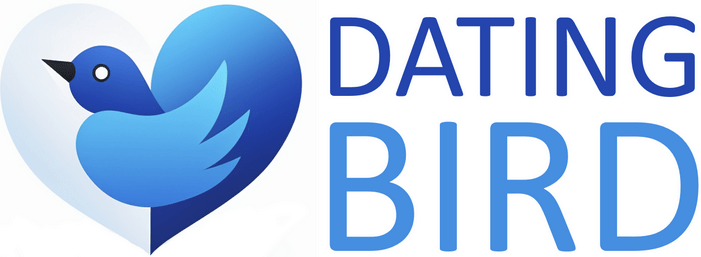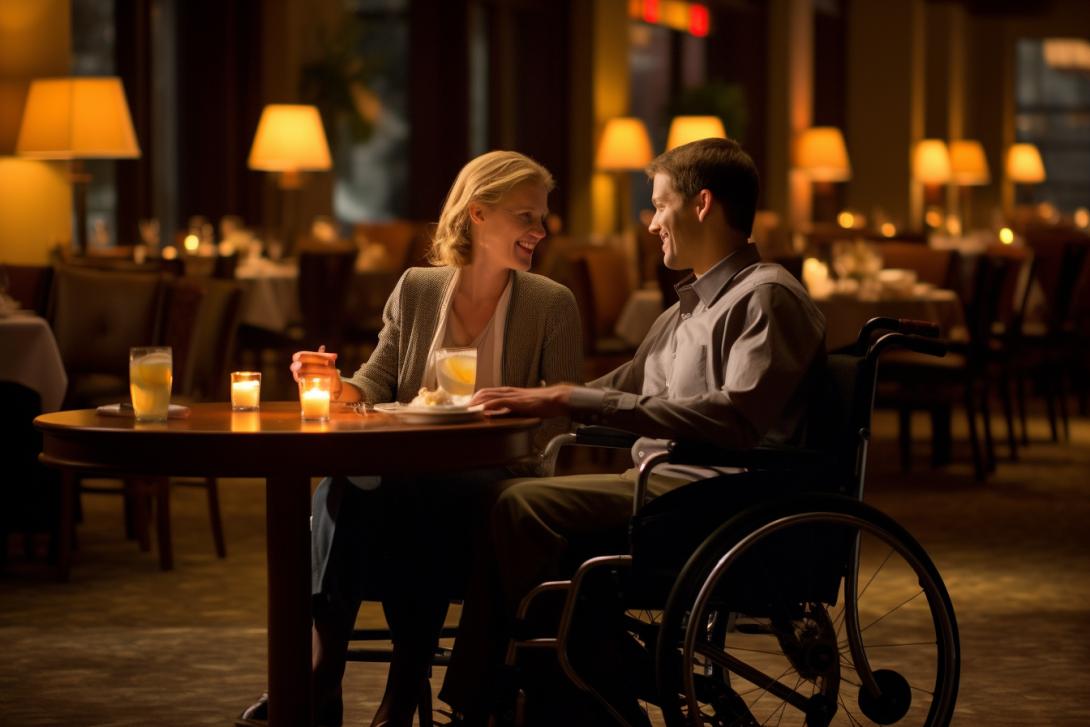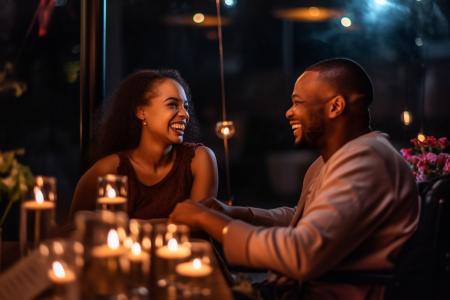Let's dive straight into our third myth: "People with disabilities cannot have a fulfilling sexual relationship". This one really needs some serious debunking, so let's get to it!
Firstly, let's be clear: every individual, regardless of ability, has the potential to have a fulfilling sexual relationship. It's a universal human right, not a privilege reserved for a select few. So, why on earth do some folks still believe this myth?
Well, it might be due to a lack of understanding or exposure to the diversity of human sexuality. Or perhaps it's down to the stereotypical portrayals of people with disabilities in media. Whatever the reason, it's high time we kicked this myth to the curb.
Now, you might be wondering, "Where's the evidence to debunk this myth?" Great question! There's plenty of evidence, both anecdotal and empirical.
Take, for instance, the countless personal stories of people with disabilities who are enjoying fulfilling sexual relationships. These stories, which are often shared on disability-centric blogs, forums, and social media platforms, paint a very different picture to the myth. They tell tales of intimacy, exploration, and satisfaction, dispelling the notion that disability equals a lack of sexual fulfilment.
Moreover, numerous studies have shown that people with disabilities can and do have sexual desires, needs, and the capacity for sexual expression. This includes people with a wide range of disabilities, from physical impairments to cognitive conditions.
But what about the impact on sexual health and wellbeing? Well, here's the thing: a fulfilling sexual relationship can have a significant positive impact on a person's overall wellbeing, regardless of disability. It can boost self-esteem, foster emotional intimacy, and contribute to a healthy, balanced lifestyle.
"A fulfilling sexual relationship is not only possible for people with disabilities, but it can also offer numerous benefits to their overall health and wellbeing."
So, there you have it. The myth that people with disabilities cannot have a fulfilling sexual relationship? Thoroughly debunked. Now, let's move on to understanding sexuality and disability in a deeper, more nuanced way. After all, debunking myths is just the first step. The real journey begins when we start to understand, empathise, and celebrate our shared humanity in all its diverse glory.
Understanding Sexuality and Disability
Ah, the great mystery of human sexuality. It's as diverse as the people experiencing it, and yet, we tend to box it into narrow definitions, don't we? When it comes to sexuality and disability, a whole Pandora's box of misconceptions and stereotypes pops open. So, let's do a little myth-busting, shall we?
First things first, let's address the elephant in the room - the myth that people with disabilities are not capable of having a fulfilling sexual relationship. Can we just chuck that idea out of the nearest window? Because it's about as accurate as a sundial at midnight.
Just like anyone else, people with disabilities have sexual desires, needs, and the capacity for emotional intimacy. The way they experience these might be different due to their disability, but different doesn't mean deficient, it just means… well, different.
One of the biggest challenges people with disabilities often face is the society's tendency to desexualise them. This can lead to feelings of isolation and invisibility. It's a bit like being the only one at a party not getting asked to dance. Not fun, right?
The reality is, people with disabilities can and do have fulfilling sexual relationships. They navigate the complexities of intimacy, just like everyone else. They have their likes, dislikes, turn-ons, turn-offs, and everything in between.
"Sexuality is a spectrum, and disability is just one aspect of the human experience. It doesn't define a person's ability to have a fulfilling sexual relationship."
So, the next time you come across a disability dating myth, take it with a pinch of salt. Or better yet, help debunk it. Because the more we challenge stereotypes, the closer we get to a world where everyone feels seen, heard, and valued in their relationships.
As we move on, let's delve into the role of communication in relationships, especially when one or both partners have a disability. After all, isn't good communication the bedrock of any successful relationship?
The Role of Communication
Communication, dear reader, is like the secret sauce that adds zing to any relationship, disability or not. It's the magic ingredient that breaks down walls, opens doors, and allows two people to connect on a deeper level.
Why is it that we often forget this simple fact? Could it be that we are so caught up in the Disability Dating Myths that we miss the fundamentals?
Let's dive in, shall we?
Expressing Needs
First on our list is expressing needs. Whether it's about your favourite pizza toppings or more intimate matters, being open about your needs is crucial. Having a disability doesn't mean you have a neon sign over your head flashing 'special treatment required'. It means you might have specific needs that your partner should understand and respect.
"Expressing your needs isn't about demanding special treatment, it's about sharing your world with your partner."
Setting Boundaries
Next up, setting boundaries. It's about defining your comfort zone and making sure your partner respects it. Remember, boundaries aren't walls to keep people out; they're guidelines that promote mutual respect and understanding.
Building Trust
Building trust is like baking a cake. It takes time, patience, and the right ingredients. Trust is the bedrock of any relationship. It’s even more crucial when you’re dating with a disability as it involves being vulnerable and letting someone in.
Enhancing Intimacy
Finally, enhancing intimacy. And no, we're not just talking about what goes on behind closed doors. Intimacy is about emotional closeness, understanding, and shared experiences. It's about letting your guard down and allowing your partner to see the real you, disability and all.
So, there you have it. Communication isn't just about talking; it's about listening, understanding, and respecting each other's needs, boundaries, and experiences. It's the key to debunking Disability Dating Myths and building a meaningful connection.
As we wrap up, remember that embracing diversity in dating means challenging stereotypes, promoting inclusion, and encouraging empathy. After all, isn't love about seeing the person, not the disability?
So, are you ready to debunk those myths and embrace diversity in dating? Let's keep the conversation going in our next section, "Conclusion: Embracing Diversity in Dating".








